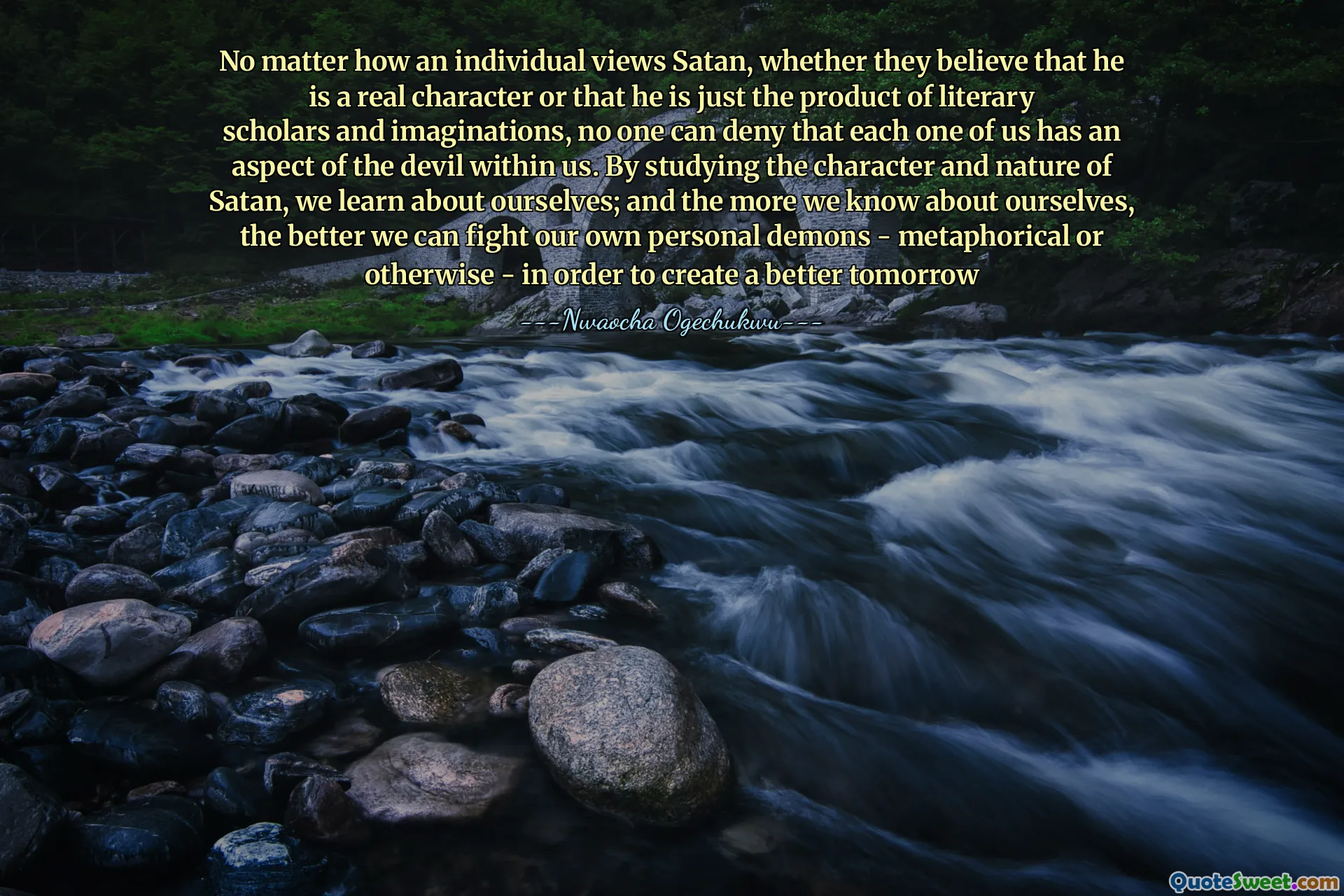
No matter how an individual views Satan, whether they believe that he is a real character or that he is just the product of literary scholars and imaginations, no one can deny that each one of us has an aspect of the devil within us. By studying the character and nature of Satan, we learn about ourselves; and the more we know about ourselves, the better we can fight our own personal demons - metaphorical or otherwise - in order to create a better tomorrow
This quote delves into the profound idea that the concept of Satan, regardless of one's belief in his literal existence or his symbolic representation, serves as a mirror for self-exploration. It proposes that within every individual resides a part that can be described as 'devilish,' or in other words, a capacity for darkness, challenges, or internal struggles. The fascinating element here is the acknowledgment that understanding this darker side through the symbol of Satan empowers us to introspect deeply about our own flaws, temptations, and battles.
Reflecting on this, one can appreciate the psychological and metaphorical significance of such introspection. The figure of Satan transcends its traditional religious connotations to become a catalyst for self-awareness and self-improvement. By studying what Satan represents—temptation, evil, rebellion—we gain insights into the complexities of human nature and the internal conflicts we all wrestle with. This internal struggle is universal, and recognizing it is the first step toward reconciliation and growth.
Moreover, the quote emphasizes that this knowledge is not merely about acknowledging one’s faults but is fundamentally linked to the pursuit of a better future. It highlights personal growth as an ongoing battle against 'our own personal demons,' whether those are real challenges or metaphorical ones like fears, doubts, or negative patterns of thinking. The ultimate message is hopeful: through understanding and confronting the darker parts within us, we can create a more positive and constructive tomorrow.
Thus, the quote beautifully connects mythology, psychology, and personal development, suggesting that the journey to fight external or internal adversaries starts from within. This concept encourages us to engage with our inner selves honestly and courageously, transforming self-knowledge into strength and hope.











